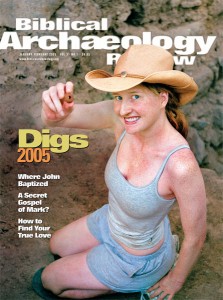First Person: Access Denied
The Israel Antiquities Authority is stonewalling

A decade and more ago, we were in a fight about the Dead Sea Scrolls with the Israel Antiquities Authority (IAA) and the small circle of scholars who controlled access to them. Today we are in a fight with the IAA about the James ossuary inscription, which mentions Jesus.
On the surface, there would seem to be no connection. Underneath there is. Both controversies involve access.
In the case of the Dead Sea Scrolls, what we wanted was to allow all scholars to study them. In retrospect, it seems so simple. Finally, they were opened up. The terrible things that some predicted haven’t happened. The scrolls have now all been published. Everyone has access to them. And Dead Sea Scroll scholarship is flourishing. A whole new generation of scholars is studying them—and a whole new scholarly industry has been born. (Just an aside: And we are on warm, friendly terms with almost all Dead Sea Scroll scholars, including some with whom we bitterly fought.)
Let’s look now at a recent interchange on the internet involving the Jehoash inscription. The Jehoash inscription, a 15-line inscription on a black plaque, describes repairs to the Solomonic Temple by King Jehoash. If authentic it would be the first royal Israelite inscription ever found. The IAA committee that declared the James ossuary inscription to be a forgery reached the same conclusion with respect to the Jehoash inscription.
Already a library member? Log in here.
Institution user? Log in with your IP address.

